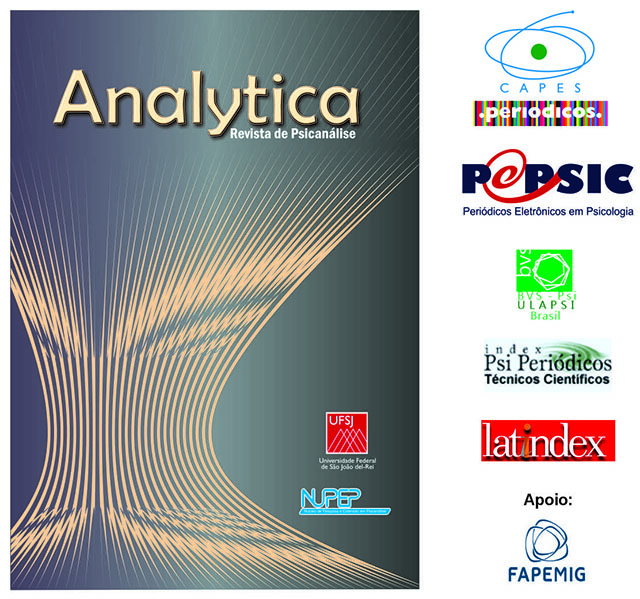Mudanças nas Diretrizes para Autores
As normas para submissão de manuscritos para a Analytica: Revista de Psicanálise foram alteradas.
Portanto, a partir do dia 14/09/2025, todos os manuscritos submetidos deverão seguir as novas exigências adotadas pela Revista.
Todas as normas podem ser acessadas em nosso site, no ícone de Submissões.
Dúvidas podem ser encaminhadas para o e-mail analytica@ufsj.edu.br
Cordialmente,
Equipe editorial Analytica: Revista de Psicanálise.


